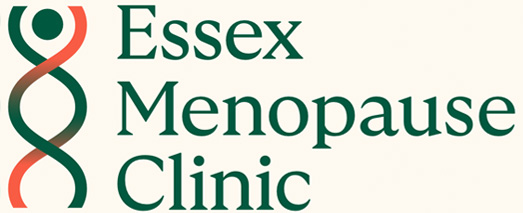Alternatives to HRT
Alternatives to HRT
There are many things you to do to help yourself if you have menopausal symptoms.
Exercise
Resistance training (i.e. strength training), is important to help reduce the risk of bone mineral density loss and muscle mass loss during menopause. Good muscle strength helps support joints that may be feeling achy during menopause and will help to increase our resting metabolic rate (and thus keep the pounds off).
Some women report feeling better with open water swimming, and many women find Pilates helps with their core strength and pelvic floor, whilst others find that yoga is a great way to reduce stress and anxiety.
There’s no ‘one size fits all’ when it comes to exercise, so find something you enjoy doing, and ring-fence time in your busy week to ensure it happens.
Nutrition
During menopause, the drop in oestrogen causes a slowing in our metabolism and our bone mineral density declines. A study has shown that women who eat more dairy and protein post-menopause will have higher bone mineral density levels than those who have dairy-free or low-protein diets: https://www.sciencedirect.com/science/article/pii/S0002916522047839?via%3Dihub
Tryptophan, which is an amino acid found in milk can also aid restful sleep – particularly staying asleep.
Foods that are high in omega-3 fatty acids (such as salmon, mackerel, walnuts, flax seeds and chia seeds) help to reduce the risk of coronary artery disease (which increases as we go through menopause).
Whole grains and foods high in fibre and B vitamins (such as whole wheat bread, quinoa and rye-based foods) have been shown to reduce severe menopausal symptoms, and women who eat more fruits and vegetables also have fewer menopausal symptoms.
It’s helpful to reduce your intake of caffeine if you’re experiencing hot flushes and sleep disturbance, and reducing alcohol can also aid sleep and reduce the emotional impact of menopause.
Herbal remedies
There is a small amount of medical evidence that some herbal treatments can help relieve hot flushes. The best evidence is for Red Clover and Black Cohosh, however, the products which are available to buy vary in their effectiveness and potency. We also don’t know how they interact with other medications and they are not normally safe for women with breast cancer to take.
Psychological therapies
Cognitive behavioural therapy (CBT) can help some women cope with mood swings and anger, as well as low mood and sleep problems. Mindfulness training has also been shown to reduce anxiety and irritability for women going through menopause and help lessen the impact of hot flushes.
Non-hormonal medications
There are some women for whom HRT is unsuitable, e.g. women who have had oestrogen-dependent cancer such as breast cancer, and some types of gynaecological cancers.
Medications which can help treat menopausal symptoms and which do not involve HRT include some antidepressant medications, e.g. Venlafaxine, Paroxetine, Fluoxetine, Sertraline, Escitalopram or Citalopram.
Other medications such as Gabapentin, Pregabalin, Clonidine and Oxybutynin can also be used.
Fezolinetant
Fezolinetant is a new, non-hormonal medication for the control of hot flushes in menopause. The thermoregulatory centre in the brain is stimulated by a chemical messenger called neurokinin B, which acts at neurokinin 3 receptors. Oestrogen naturally inhibits over-stimulation of the thermoregulatory centre by blocking the neurokinin 3 receptor. At the time of menopause, the reduction in oestrogen means that there is no blockade of the neurokinin B action. This results in an increase in the stimuation of the thermoregulatory centre, and subsequent ‘vasomotor’ symptoms, such as hot flushes and night sweats.
Fezolinetant is a neurokinin 3 receptor antagonist, which blocks the effect of neurokinin B, preventing the overstimulation of the thermoregulatory centre.
In clinical trials, taking Fezolinetant resulted in a significant reduction in hot flushes and sweats, and importantly, an improvement in sleep. Most patients reported that their symptoms had improved within a month of taking the medication.
No patients who had previously suffered from breast cancer were included in the clinical trials, so we don’t have any direct evidence of safety in this group of patients, but it certainly looks like a promising non-hormonal option for the treatment of vasomotor symptoms
